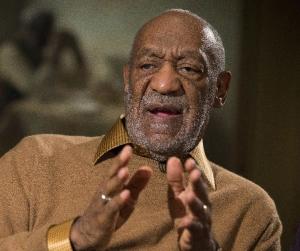By Casey Bukro
The serial rape allegations against Comedian Bill Cosby have reached the stage where people are asking why the media failed to report them when they happened.
It’s complicated and messy, in part because Cosby denies the allegations and calls them “innuendos” from the distant past which he will not dignify with a response.
The public often blames the media for hounding celebrities, sometimes to the point of ruining their reputations. Other times, the media are accused of promoting popular celebrities to the point of being a cheering section.
Both true.
It could be argued that Cosby got the cheering section treatment for decades. But now that’s changing and causes observers to wonder if media watchdogs failed, professionally and ethically.
Especially troubling are media reports that, in exchange for an exclusive interview, Cosby made a deal with the National Enquirer to delay a story about a new rape accusation while the civil suit in another rape case was going on. That strikes to the heart of media responsibility to report the facts, and whether the media did that in Cosby’s case.
The Columbia Journalism Review says the press is responsible for ignoring Cosby rape allegations, pointing out that People Magazine published an article in 2006 about five women who accused him of rape.
About 20 women have accused Cosby of assaults, most dating to the 1970s and 1980s.
From a wider perspective, rape is one of those issues where the media tend to reflect societal attitudes, which includes the issue of privacy for both public and private figures. And all of that is changing fast. Media always had a responsibility to lead public opinion, not just follow it.
Not so long ago reporters ignored the private peccadillos of powerful figures in the belief that what they did in private was their business, not the public’s. Their silence was called “a gentleman’s agreement.”
Think President John F. Kennedy and President Dwight D. Eisenhower.
Kennedy was a known cavorter, but the White House press corps ignored it, in part to stay in the president’s good graces.
Rumor had it that Eisenhower had an affair with his war-time chauffeur, Kay Summersby, who confirmed it in 1975 in a memoir titled “Past Forgetting: My Love Affair with Dwight D. Eisenhower,” before she died. The rumors stayed mostly under wraps until the memoir appeared.
But rape is far more complicated. In the past, police departments sometimes minimized it as a he said/she said sort of thing. Women were sometimes twice victimized by rape and then accused of bringing it upon themselves. Sometimes they were ashamed to talk about it, especially when alcohol was involved.
It is a topic coming out of the shadows as women are more inclined to talk about it, and the media more inclined to report on it partly as a result of that openness and changing social views. That comes at a time when other sensitive issues, such as gay rights and abortion, are discussed more openly.
The Cosby accusations stretch over decades, enough time to show how differently the issue is treated, then and now.
The case against Cosby snowballed recently after supermodel Janice Dickinson publicly accused the entertainer of drugging then raping her in 1982 when she met with him, hoping he would help advance her career. Dickinson is one of about 20 women who tell similar stories, one of whom was 15 years old at the time.
Nostalgia is another time-related thing.
Entertainment is a fantasy, just as Cosby as Cliff Huxtable was a fantasy. But it was a fantasy that the public desperately wanted to believe, wrote Vox.com’s Amanda Taub. They wanted to keep happy childhood memories of the Cosby show.
